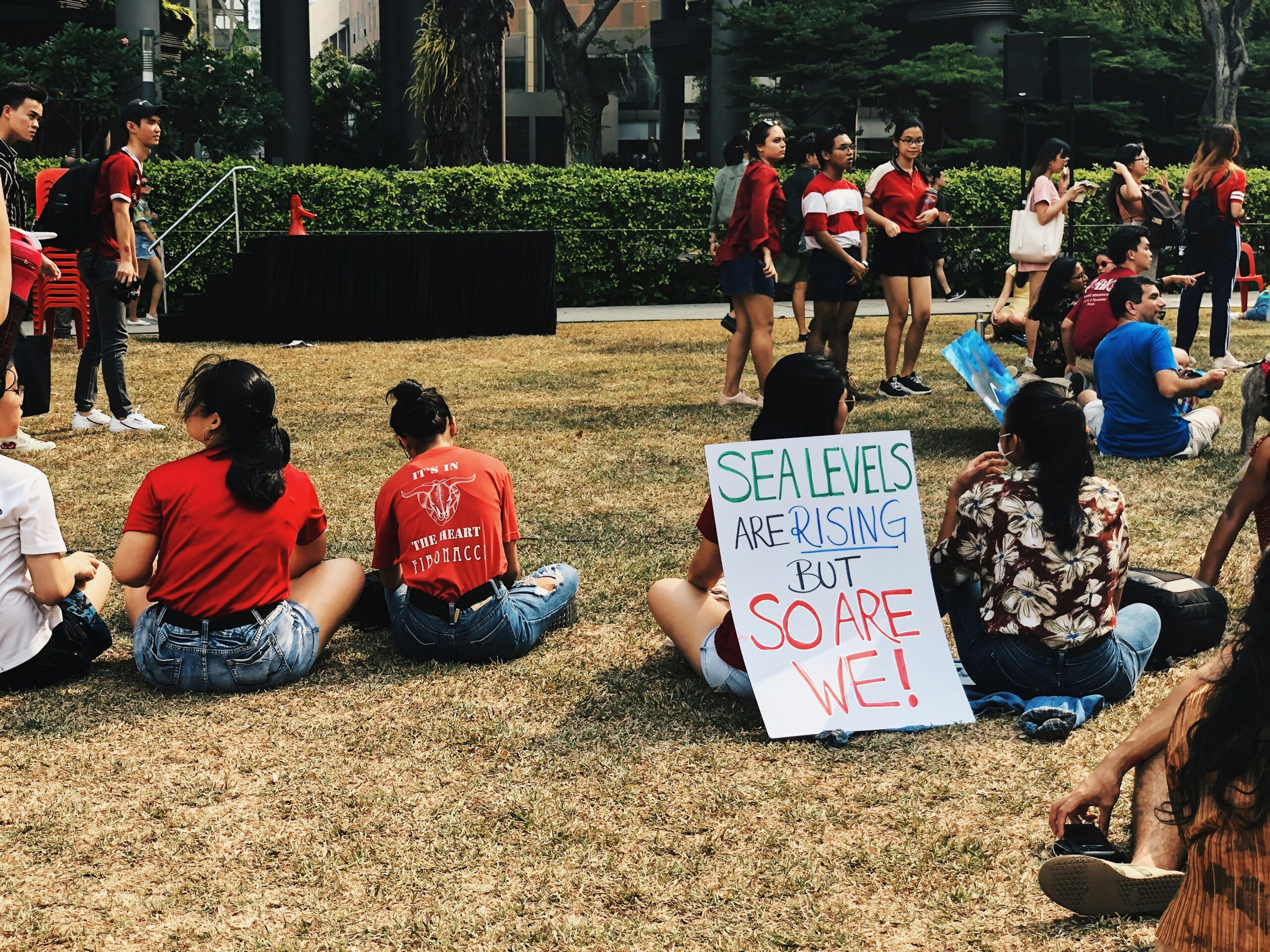
Introduction to International Men’s Day
International Men’s Day is observed annually on November 19, serving as a dedicated occasion to recognize and celebrate the positive contributions that men make to society while also addressing critical issues related to men’s health and well-being. Established in 1992 by Dr. Jerome Teelucksingh, a scholarly advocate from Trinidad and Tobago, the day was initially marked to honor his father’s birthday but has since evolved into a global observance highlighting the significance of men’s lives.
The primary objectives of International Men’s Day revolve around promoting men’s health, fostering gender equality, and enhancing the bond between men and women. In its essence, the day champions the notion that while acknowledging men’s achievements, society must also address the challenges that men face, including mental health issues and societal expectations. By shining a light on these aspects, International Men’s Day endeavors to initiate meaningful conversations about gender dynamics and promote mutual respect among individuals.
More information Empowering Communities: Practical Applications of Local Activism
Empowering Communities: Practical Applications of Local ActivismThe Theme for International Men’s Day 2024
International Men’s Day 2024 is poised to spotlight a theme that is not only relevant but also profoundly impactful in today’s societal landscape. This year, the chosen theme emphasizes “Men’s Health and Well-Being in Modern Society.” As society evolves, the conversation about men’s roles, challenges, and responsibilities has become increasingly vital. The focus on health and well-being addresses pressing issues that men face, including mental health, lifestyle choices, and the pressures of societal expectations.
The selection of this theme resonates with contemporary discussions surrounding mental health awareness, especially among men, which has been a historically underrepresented topic. By openly addressing men’s health, the theme aims to inspire dialogues that challenge traditional norms, encouraging men to seek help and express vulnerability. This is particularly significant in light of rising awareness around mental health issues that disproportionately affect men, such as depression and anxiety. The 2024 theme endeavors to foster an environment where men can communicate their struggles without the stigma that often accompanies such admissions.
Moreover, the theme’s relevance extends beyond individual health to encompass broader societal implications. By addressing men’s health and well-being, this theme aligns with global gender equality discussions, recognizing that promoting men’s health contributes to healthier communities as a whole. It challenges outdated views of masculinity that equate vulnerability with weakness, and instead, cultivates narratives that celebrate men who prioritize their well-being.
More information Building Stronger Communities: The Role of Civil Society in Social Structures
Building Stronger Communities: The Role of Civil Society in Social StructuresIn conclusion, the theme for International Men’s Day 2024 serves not only to raise awareness around men’s health but also to initiate broader conversations about gender roles and responsibilities in shaping a more inclusive society. This initiative promises to inspire a redefined understanding of masculinity, acknowledging that open dialogue and emotional wellness are essential for all individuals, irrespective of gender.
Historical Background of International Men’s Day
International Men’s Day (IMD) was established in 1992 in Trinidad and Tobago by Dr. Jerome Teelucksingh. The date, November 19, was chosen to honor his father’s birthday and has since grown to symbolize the contributions and achievements of men while promoting awareness of men’s health issues. Initially, IMD focused on men’s health, promoting positive male role models and advocating for gender equality. Over the years, it has developed into an occasion to discuss societal issues affecting men and boys.
One notable milestone occurred in 1999 when the day gained traction in various countries, including the United States, Australia, and the United Kingdom. This expansion marked a shift from a localized celebration to a broader global observance, aiming to address men’s health, social, and cultural challenges. Events began to emerge across continents, illustrating the diverse perspectives and local challenges faced by men worldwide.
More information The Right to Human Privacy: Safeguarding Our Secrets and Personal Space
The Right to Human Privacy: Safeguarding Our Secrets and Personal SpaceIn the early 2000s, the theme of IMD began to evolve significantly. Different themes are proposed annually, each one addressing specific issues such as mental health, violence against men, or fatherhood, highlighting a more nuanced understanding of masculinity. Influential figures such as feminists and male advocates for gender equality have played significant roles in broadening the day’s focus, fostering dialogue about men’s roles and responsibilities in contemporary society.
Since its inception, International Men’s Day has gained considerable recognition, endorsed by various governments and organizations. It provides a crucial platform for dialogue regarding the significance of men’s contributions while advocating for mental well-being and raising awareness about issues such as domestic violence, prostate cancer, and male suicide rates. The ongoing evolution of this day reflects a growing commitment to addressing the complex nature of masculinity and gender equality, ultimately enriching societal understanding and cohesion.
Significance of International Men’s Day
International Men’s Day, observed on November 19 each year, serves as an opportunity to highlight various issues that affect men and boys globally. This day is not only a celebration but also a movement aimed at raising awareness regarding men’s mental health, physical well-being, and the necessity of fostering positive male role models. The significance of this observance lies in its emphasis on the pressing need for a dialogue around mental health challenges faced by men, including stigma, vulnerability, and the societal pressures that often discourage men from seeking help.
More information Voluntary Associations: Building Parallel Structures Beyond Traditional Institutions
Voluntary Associations: Building Parallel Structures Beyond Traditional InstitutionsBy advocating for better mental health resources and support systems tailored specifically towards men, International Men’s Day contributes significantly to improving overall well-being. Additionally, this day serves as a reminder of the importance of male role models who exhibit healthy masculinity, demonstrating traits such as empathy, respect, and responsibility. These role models are crucial in shaping the perceptions of young boys, guiding them toward developing emotionally intelligent and well-rounded characteristics.
Moreover, recognizing the contributions men make to families, communities, and society at large is vital for fostering inclusive gender dynamics. International Men’s Day encourages reflection on the diverse roles that men occupy, from nurturing fathers to dedicated professionals, and underscores their influence in various areas such as parenting, education, and community service. This acknowledgment not only validates men’s experiences but also encourages cooperative efforts between genders to promote equality and mutual respect.
In essence, International Men’s Day pushes for a cultural shift that values men’s health, well-being, and positive contributions. By celebrating these aspects, it aims to challenge stereotypes, promote better gender relations, and establish a healthier framework wherein everyone, regardless of gender, can thrive.
Ways to Celebrate International Men’s Day
International Men’s Day, celebrated on November 19, provides an opportunity for individuals and communities to recognize and appreciate the contributions of men in various spheres of life. Celebrating this day can take many forms, allowing everyone to foster a spirit of inclusivity and reflection. Here are several practical suggestions for how to commemorate this significant occasion.
One effective way to celebrate is to host or participate in community events such as workshops, panel discussions, or seminars that focus on men’s roles in society, health, and well-being. Engaging local speakers who can address topics related to mental health, fatherhood, and ethical leadership can spark crucial conversations and help dismantle harmful stereotypes. By creating an open forum, individuals can share their experiences and learn from one another.
Social media also plays a vital role in acknowledging International Men’s Day. Individuals can share messages that highlight the importance of positive male role models and celebrate the achievements of men in various fields. By utilizing hashtags and engaging visuals, users can amplify their messages, encouraging wider participation and reflection. Social media campaigns can generate awareness and stimulate dialogue on male health issues and emotional well-being.
Furthermore, simple gestures of appreciation can significantly honor the men in one’s life. Writing notes of gratitude, giving small tokens of appreciation, or spending quality time together can strengthen relationships and boost morale. Families and friends can create special activities, such as a movie night or a community clean-up, focusing on teamwork and camaraderie, thus enhancing the sense of community.
In summary, celebrating International Men’s Day can involve various approaches that promote understanding, support, and appreciation. By hosting events, sharing messages online, and acknowledging the contributions of men in our lives, we cultivate a culture of respect and recognition. Taking action on this day is an opportunity to not only celebrate men but also to encourage a broader dialogue on gender equality and health. It is a collaborative effort that ultimately benefits society as a whole.
Messages, Wishes, and Quotes for International Men’s Day
International Men’s Day offers a unique opportunity to recognize and appreciate the men who play significant roles in our lives. Whether they are friends, family members, or mentors, expressing gratitude is essential for fostering positive relationships. Below are several heartfelt messages and wishes that can inspire you to convey your appreciation to the important men in your life.
“To the men who exemplify strength and kindness, thank you for being a constant source of support. Your impact is immeasurable, and today, we honor you.” This wish encapsulates the essence of acknowledging the positive contributions men make to society and personal relationships. With every encouraging gesture or word, they inspire those around them to reach their potential.
Quotes can also be a meaningful way to express your admiration. Consider the words of Mahatma Gandhi: “The best way to find yourself is to lose yourself in the service of others.” This quote serves as a reminder of the importance of selflessness and leadership that many men embody. Sharing such thoughts fosters a sense of unity and purpose.
Messages don’t always have to be grand. A simple statement like, “Happy International Men’s Day! Your integrity and determination are inspiring,” can resonate deeply and strengthen bonds. It’s a small affirmation that acknowledges the man’s journey and achievements. By sharing sentiments like these, we contribute to a culture of respect and appreciation.
Additionally, for those who wish to share a lighthearted message, “Cheers to all the amazing men! May your day be filled with laughter and joy!” can create a cheerful atmosphere. Balancing humor with sincerity allows for authentic expressions of gratitude. Ultimately, whether profound or light-hearted, each message holds the potential to uplift and connect, reinforcing the importance of celebrating International Men’s Day.
Events and Activities for International Men’s Day
International Men’s Day, celebrated annually on November 19, serves as a platform for highlighting the contributions that men make to society, raising awareness about men’s health issues, and promoting gender equality. In 2024, a variety of engaging events and activities are scheduled globally, aimed at fostering community involvement and celebrating positive male role models.
One noteworthy event includes a series of workshops and seminars focused on mental health, highlighting the importance of emotional well-being for men. These programs will feature mental health professionals who will lead discussions about common challenges faced by men and offer practical strategies for coping and resilience. In less urban areas, local community centers will host events designed to create safe spaces for men to discuss their experiences and connect with one another.
Moreover, various organizations are organizing community gatherings to encourage active participation from all demographics. These events will include panel discussions featuring distinguished speakers from various fields, such as mental health advocates, sports personalities, and community leaders. Here, attendees will have the opportunity to engage in meaningful conversations about masculinity in the modern world and the societal expectations men face today. Campaigns aimed at promoting positive masculinity will also thrive, encouraging men to embrace vulnerability and authenticity.
Media campaigns across social platforms will be launched to raise awareness, encouraging individuals to share their stories and celebrate the men in their lives. These campaigns aim to amplify the voices of men who advocate for change in various spheres, including health, education, and family support.
Ultimately, the events and activities planned for International Men’s Day 2024 represent a vibrant approach to understanding and celebrating the multifaceted roles men play in society. By actively participating in these celebrations, individuals can contribute to a deeper dialogue about gender equality and men’s health on a global scale.
Challenges Faced by Men in Society Today
In contemporary society, men grapple with a multitude of challenges that are often overlooked in discussions surrounding gender equality. One of the most pressing issues is mental health. Traditionally, men have been conditioned to embody ideals of toughness and stoicism, which frequently leads to the phenomenon of suppressed emotions. Consequently, men are less likely to seek help for mental health issues, resulting in alarming statistics related to depression, anxiety, and suicide rates among men. Research shows that men are three times more likely to die by suicide than women, illustrating the critical need for a cultural shift towards accepting and addressing mental health as a key concern.
Another significant challenge is the societal pressures that compel men to conform to rigid masculine norms. These expectations can perpetuate harmful stereotypes that equate masculinity with dominance, aggression, and emotional detachment. As men navigate these societal expectations, they may feel compelled to engage in competitive behaviors that can lead to toxic environments, both personally and professionally. The pressure to fulfill these archaic roles often exacerbates feelings of inadequacy and isolation, making it difficult for men to forge meaningful connections.
Furthermore, there remains a prevalent stigma surrounding vulnerability in men. Expressing emotions, seeking help, or accepting support is often seen as a sign of weakness, discouraging many from addressing their struggles. This stigma is deeply embedded in societal views of masculinity, presenting a barrier to healthy emotional expression. International Men’s Day serves as a pivotal platform to highlight these issues, advocating for a redefined narrative around masculinity that embraces emotional openness and mutual support. By fostering discussions that validate men’s experiences and challenges, society can begin to dismantle these outdated stereotypes, promoting a more compassionate and understanding atmosphere for all individuals.
Resources for Men’s Health and Well-being
Men’s health and well-being encompass various aspects, including physical, mental, and emotional wellness. Accessing the right resources is essential for men to address the unique challenges they face. Several organizations and platforms specifically cater to men’s health, providing information, support, and services tailored to their needs.
One valuable resource is the Men’s Health Network, a non-profit organization focused on promoting awareness of health issues affecting men. Their website offers a wealth of information on health topics, preventive measures, and screenings commonly recommended for men. Additionally, they provide educational materials and programs designed to encourage healthier lifestyles and behaviors.
An important aspect of men’s well-being is mental health, and organizations like the National Alliance on Mental Illness (NAMI) offer vital resources for men struggling with mental health challenges. NAMI provides helplines, support groups, and educational resources to help individuals navigate their experiences and seek professional assistance when needed. Engaging with such organizations can significantly improve men’s mental health outcomes by promoting awareness and reducing stigma associated with seeking help.
Another crucial resource is the American Psychological Association (APA), which offers a variety of publications and materials centered on men’s mental health. Their website features articles, guides, and tips on managing stress, anxiety, and other mental health concerns. It is essential for men to recognize the importance of prioritizing their psychological health and utilizing the resources available to them.
Support groups, both online and in-person, can provide a safe space for men to share their experiences and find community among peers facing similar challenges. Websites such as MeetUp and local community centers may offer listings of relevant support groups. By harnessing these various resources, men can take proactive steps toward enhancing their health and well-being, fostering a culture of openness and support.



